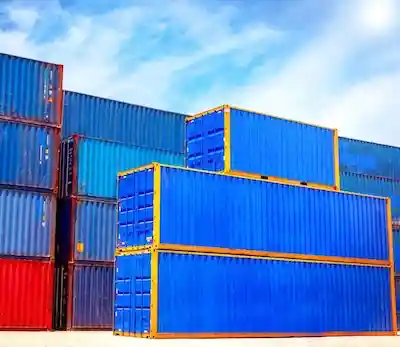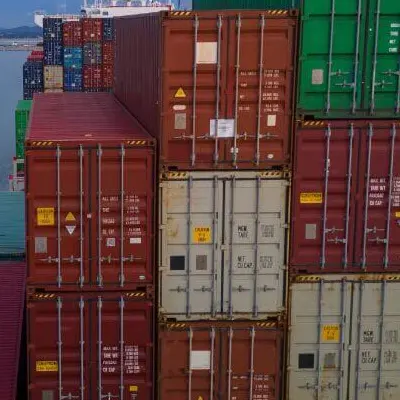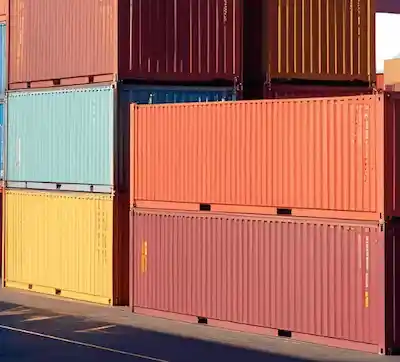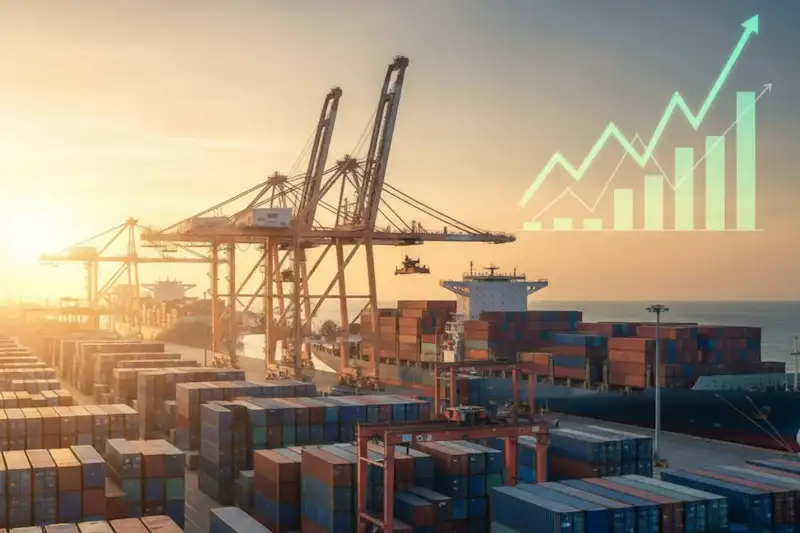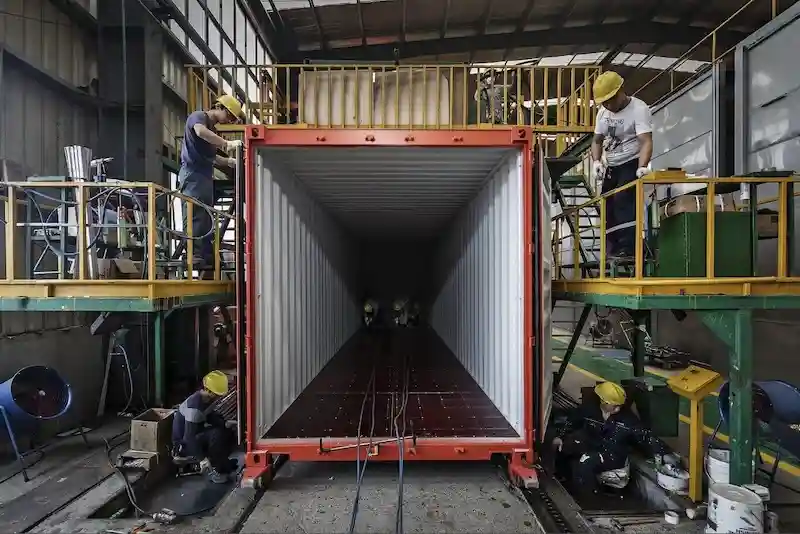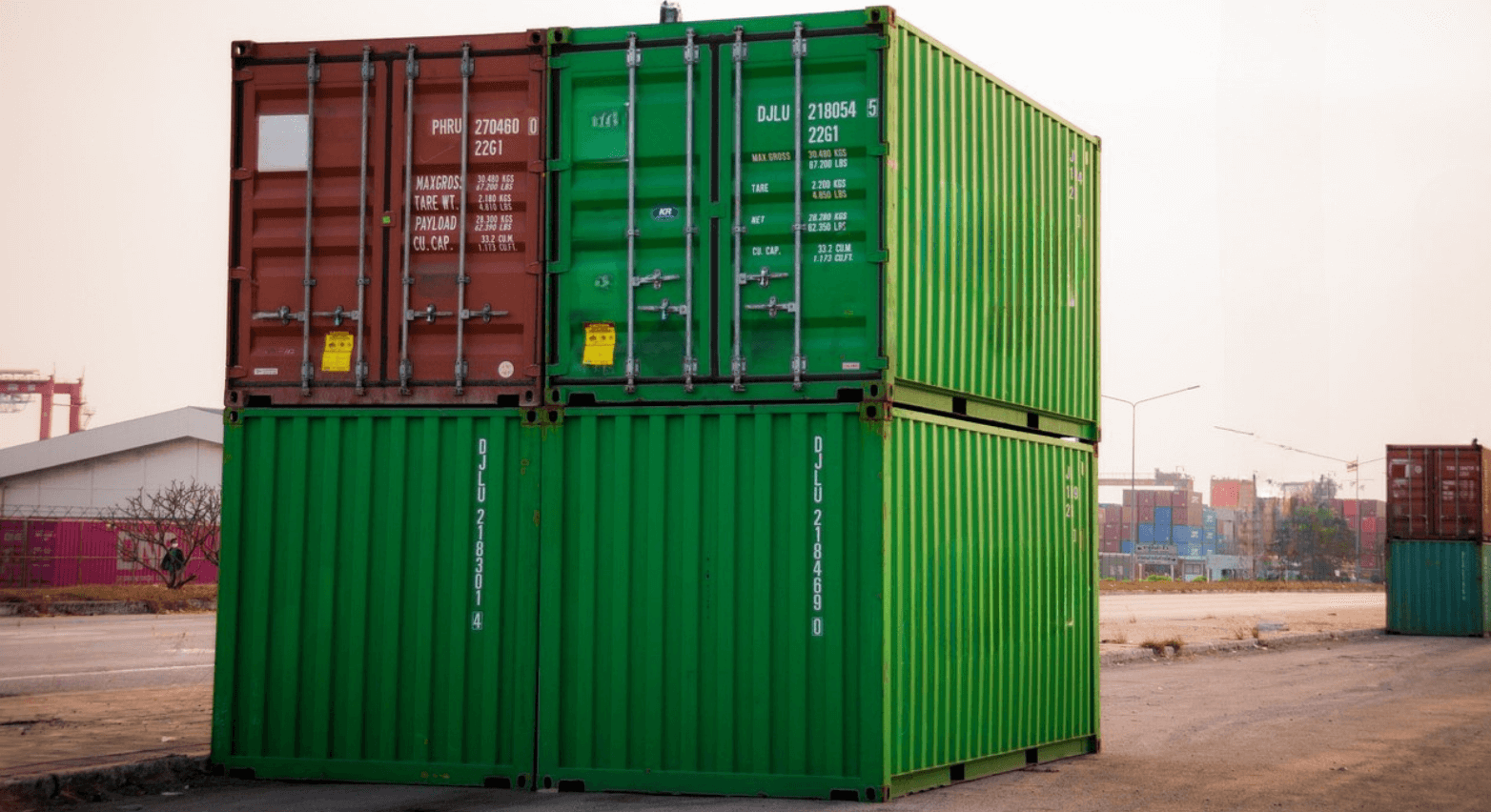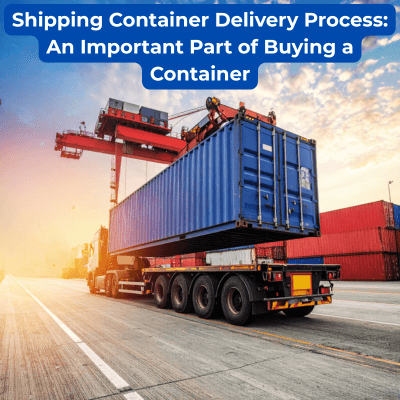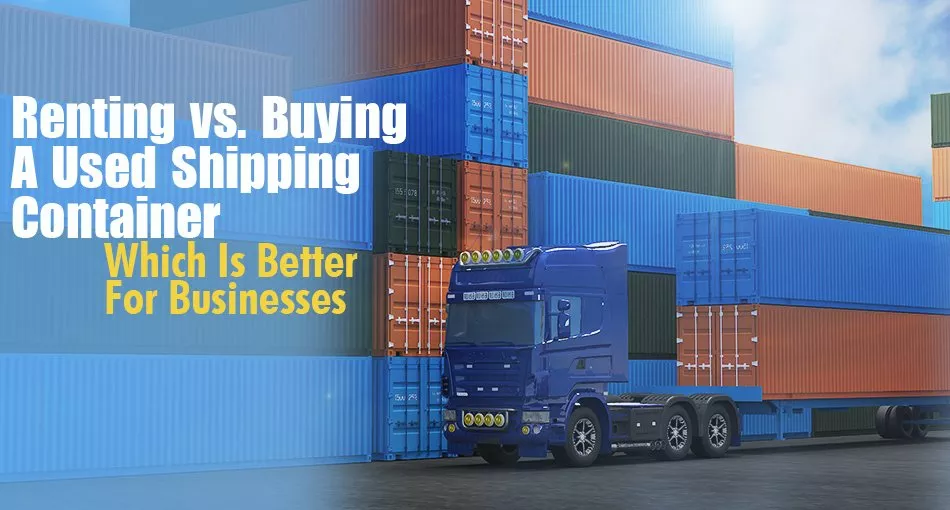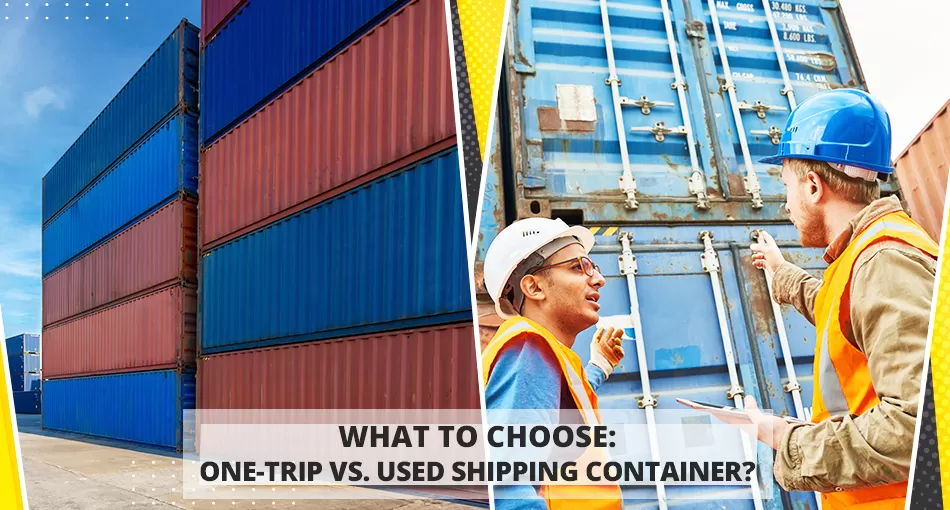Renting vs Buying a Shipping Container: A Comparison Guide

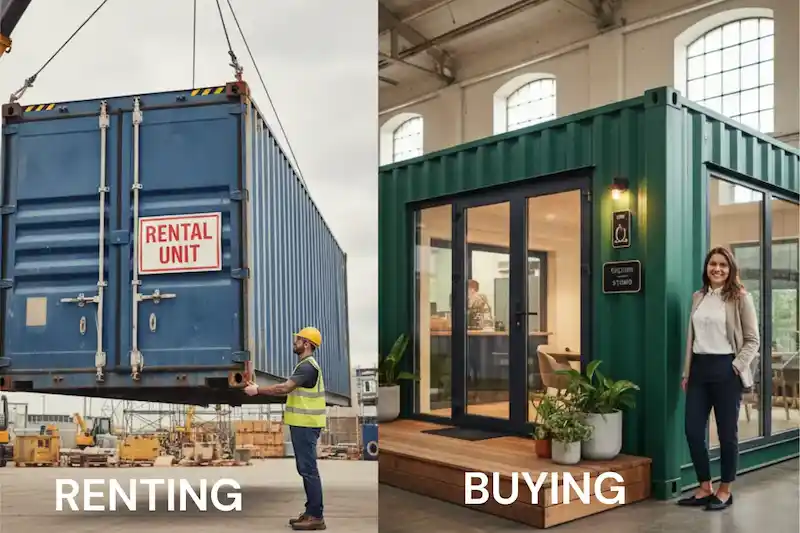
If you ever thought about whether it’s better to rent or buy a shipping container for a quick project, ongoing storage, or a creative upcycling idea, the choice isn’t always obvious, and the wrong option will cost more than you planned. It’s best to compare both options and weigh the different important factors, and our guide will help you solve this task.
Advantages of Renting a Shipping Container
Renting a shipping container means you’re essentially borrowing one for a set amount of time, rather than making a permanent purchase. You don’t have to worry about long-term ownership, maintenance, or high upfront costs. Instead, you pay a rental fee, which is usually based on the container’s size and how long you plan to use it.
Here are three main advantages of renting a shipping container.
Short-term and Flexible Options
Renting is perfect when you only need a container for a specific period: maybe you’re managing a short-term work project, setting up a temporary shop, or renovating your home. Rental agreements typically offer flexible terms, allowing you to adjust your plans if timelines shift. You’re not tied to a container longer than necessary.
Lower Upfront Costs
Renting simply needs small monthly payments, unlike purchasing, which demands a large amount of money up front. For example, if you need storage for seasonal business inventory, renting allows you to scale your expenses according to demand without committing to a big purchase.
Ideal for Temporary Storage or One-time Use
If you’re relocating and need extra space for a few months or working on a construction site that requires brief equipment storage, you get exactly what you need for the duration of your project without the burden of ownership after it’s done.
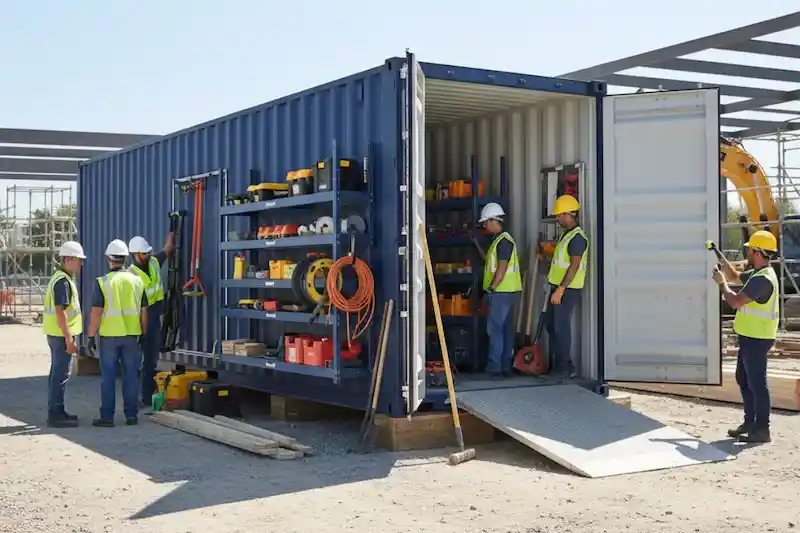
Advantages of Buying a Shipping Container
Buying a shipping container means you’re becoming the full owner of the container. Unlike renting, there are no recurring rental payments or restrictions imposed by a rental agreement. When you buy, the container is yours, giving you full control over how it’s used and modified. But these are not the only advantages of buying a shipping container.
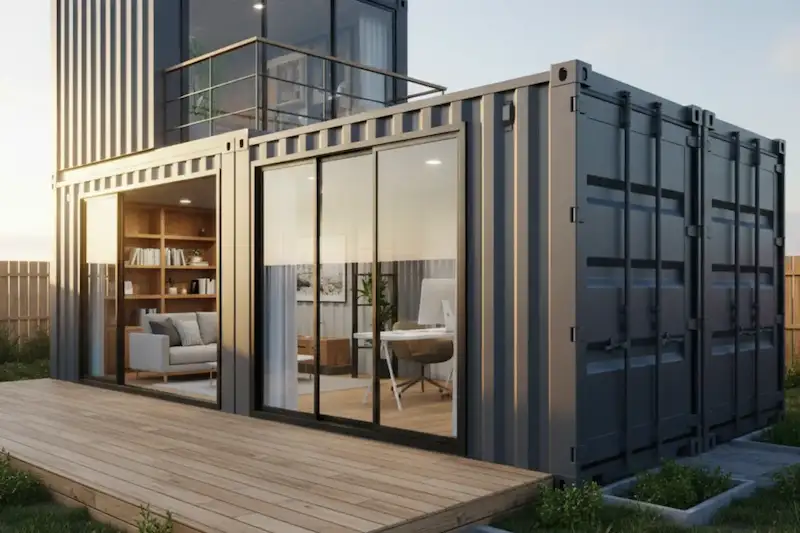
Long-term Investment
If you know you’ll need a container for years to come, buying makes financial sense. Instead of paying month after month in rental costs, you can put that money toward ownership. For example, if you’re a business owner needing permanent storage for equipment or materials, owning a container saves you from the hassle and cost of constantly renewing a rental agreement.
Potential Cost Savings Over Time
While the upfront cost of purchasing a container is higher, it often ends up being more cost-effective over time. If you rent a container for two years, by the time your rental term is up, you might have paid enough to buy one. Purchasing a container right from the start eliminates recurring payments, and if you no longer need the container down the road, you can sell it and recoup some of your costs. To learn more about this option, check out our container-buying guide.
Full Control Over Modifications and Usage
When you own a shipping container, you have the freedom to do whatever you want with it — install windows, paint it, add insulation, and more. Ownership allows you to customize the container to perfectly fit your needs, and you can even turn it into an office, a workshop, or a unique retail space. Rental containers, in comparison, often come with restrictions, meaning you might be stuck with a basic setup that doesn’t fully work for you.
There are plenty of benefits to both renting and buying a shipping container, but no solution is perfect. Before you make your decision, it’s important to look at the other side of the coin — potential drawbacks.
Disadvantages of Renting and Buying a Shipping Container
No decision is without its trade-offs, and the choice between renting and buying a shipping container is no exception. There are certain challenges, too.
For example, the disadvantages of renting a shipping container include:
- Lack of ownership. When you rent a container, you never truly own it. It doesn’t matter for a short-term need, but it feels limiting if you use the container for an extended period. For instance, if you end up relying on the rental container for years, you’ll eventually spend enough in rental fees to have purchased one outright — but without the benefit of keeping it.
- Potential long-term costs. Renting seems cost-effective at first, but monthly payments add up over time. Imagine you’re renting a container for a multi-year project; by the end of the term, you could have spent well beyond the purchase price. For long-term or frequent use, it quickly becomes a less economical choice.
- Restrictions on modifications. When you rent, you typically can’t make changes to the container. Shelving, insulation, or even a fresh coat of paint aren’t allowed with rental units, limiting how well the container can serve your needs.
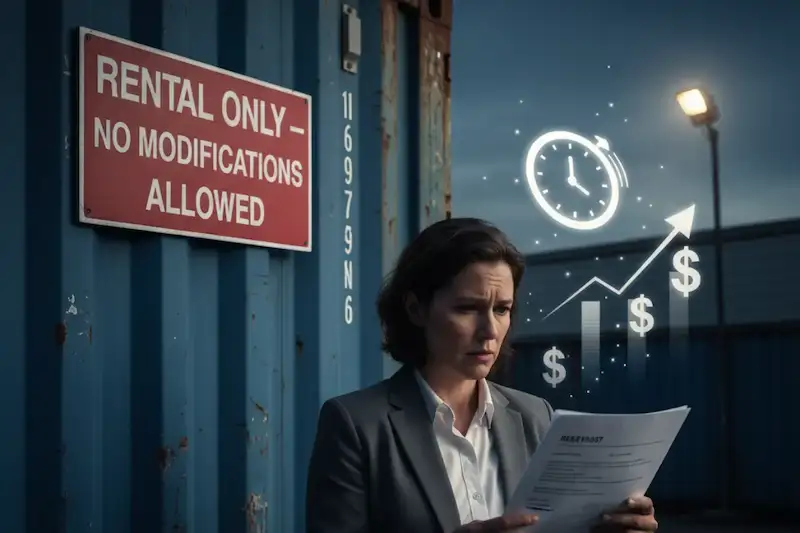
However, buying a shipping container is also not without its drawbacks:
- High upfront costs. The most obvious downside to buying is the initial price tag. Purchasing a shipping container requires a large investment upfront, which strains finances, especially if you’re running a small business or managing a tight personal budget. If buying isn’t planned carefully, it may lead to unwanted financial pressure.
- Maintenance responsibilities. Once you own the container, you’re responsible for its upkeep because, over time, even the sturdiest containers require repairs. These maintenance tasks seem minor but add up in both time and cost, particularly if the container is exposed to harsh weather conditions.
- Challenges with reselling. If your needs change down the line, reselling a shipping container isn’t always straightforward: depending on its condition and the demand in your area, selling the container may take longer than expected or fetch a lower price than you’d hoped.
These drawbacks are worth considering because the right choice depends on your specific situation, including how long you’ll need the container, your budget, and whether customization is crucial for your use case. Use our guide to weigh these disadvantages against the benefits, and you can move one step closer to buying or renting a container.
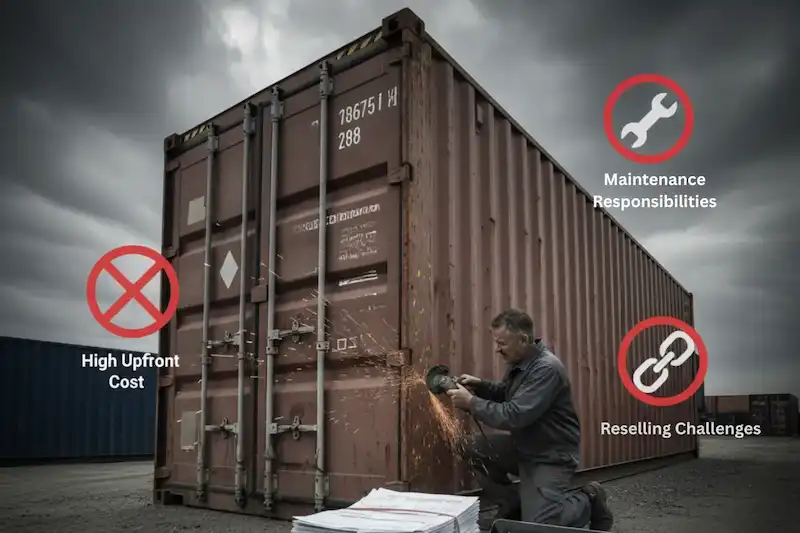
Conclusions
Choosing between renting and buying a shipping container isn’t a one-size-fits-all decision, and that’s a good thing. You need to think about what matters most to you. Choose renting if you need something flexible and affordable for the short term, but be ready to say goodbye to your container when the rental term is over. In comparison, buying gives you the freedom to modify and use the container however you’d like, but it adds more responsibilities — and, of course, raises costs.
Vanessa is a dedicated writer and content enthusiast at Pelican Containers. With a background in practical writing and a keen eye for clarity, she transforms complex container topics into easy-to-understand and useful content. Her passion lies in exploring the evolving world of container usage — from smart storage hacks to global logistics trends.
When she's not writing, Vanessa loves discovering creative shipping container projects or traveling to find new inspiration.
Explore thoughtful, informative, and accessible content with Vanessa!
Vanessa is a dedicated writer and content enthusiast at Pelican Containers. With a background in practical writing and a keen eye for clarity, she transforms complex container topics into easy-to-understand and useful content. Her passion lies in exploring the evolving world of container usage — from smart storage hacks to global logistics trends.
When she's not writing, Vanessa loves discovering creative shipping container projects or traveling to find new inspiration.
Explore thoughtful, informative, and accessible content with Vanessa!
FAQ
What are the pros of renting a shipping container for temporary storage?
Renting a shipping container is perfect when you need storage for a short period. You only pay for as long as you use it and don’t make a large initial investment. Plus, rentals often include services like delivery and removal.
What long-term benefits come with buying a shipping container?
Owning a shipping container means it’s yours to keep and use as you wish. Over time, you’ll likely save money compared to renting, especially if you need the container for years. You also get the freedom to modify it however you like.
How can renting a container be more flexible than buying?
Renting lets you adapt to your changing needs without selling or repurposing a container. And when your project’s done, you just return a container.
How do transportation and maintenance costs affect the overall decision?
With renting, delivery and pickup are often included or offered at a lower cost, and you won’t need to worry about keeping the container in perfect condition — that’s the rental company’s responsibility. When you own, those costs fall on you. You’ll need to pay for delivery and ensure the container stays in good shape, such as repairing rust or replacing locks.
When is it more cost-effective to rent a shipping container rather than buy one?
If your need for a container is short-term, renting is almost always the smarter financial choice. For example, if you’re undergoing a two-month home renovation or need a temporary workspace, renting lets you avoid the upfront cost of buying. It also keeps things financially efficient if you’re unsure about your long-term needs. Rather than being tied down, you can adjust or walk away once your storage needs are met.
